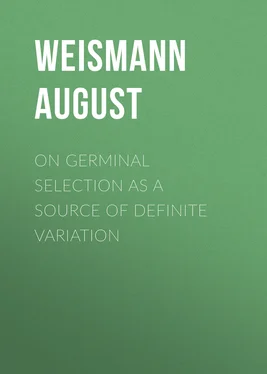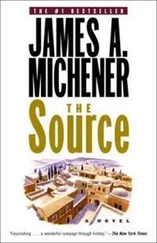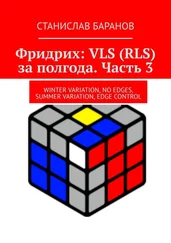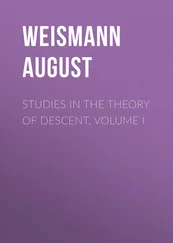August Weismann - On Germinal Selection as a Source of Definite Variation
Здесь есть возможность читать онлайн «August Weismann - On Germinal Selection as a Source of Definite Variation» — ознакомительный отрывок электронной книги совершенно бесплатно, а после прочтения отрывка купить полную версию. В некоторых случаях можно слушать аудио, скачать через торрент в формате fb2 и присутствует краткое содержание. Жанр: foreign_antique, Биология, foreign_edu, на английском языке. Описание произведения, (предисловие) а так же отзывы посетителей доступны на портале библиотеки ЛибКат.
- Название:On Germinal Selection as a Source of Definite Variation
- Автор:
- Жанр:
- Год:неизвестен
- ISBN:нет данных
- Рейтинг книги:4 / 5. Голосов: 1
-
Избранное:Добавить в избранное
- Отзывы:
-
Ваша оценка:
- 80
- 1
- 2
- 3
- 4
- 5
On Germinal Selection as a Source of Definite Variation: краткое содержание, описание и аннотация
Предлагаем к чтению аннотацию, описание, краткое содержание или предисловие (зависит от того, что написал сам автор книги «On Germinal Selection as a Source of Definite Variation»). Если вы не нашли необходимую информацию о книге — напишите в комментариях, мы постараемся отыскать её.
On Germinal Selection as a Source of Definite Variation — читать онлайн ознакомительный отрывок
Ниже представлен текст книги, разбитый по страницам. Система сохранения места последней прочитанной страницы, позволяет с удобством читать онлайн бесплатно книгу «On Germinal Selection as a Source of Definite Variation», без необходимости каждый раз заново искать на чём Вы остановились. Поставьте закладку, и сможете в любой момент перейти на страницу, на которой закончили чтение.
Интервал:
Закладка:
August Weismann
On Germinal Selection as a Source of Definite Variation
PREFACE
The present paper was read in the first general meeting of the International Congress of Zoölogists at Leyden on September 16, 1895. Several points, which for reasons of brevity were omitted when the paper was read, have been re-embodied in the text, and an Appendix has been added where a number of topics receive fuller treatment than could well be accorded to them in a lecture. The address was first printed in The Monist for January, 1896, and afterwards in a German pamphlet.
The basal idea of the essay—the existence of Germinal Selection—was propounded by me some time since, 1 1 Neue Gedanken zur Vererbungsfrage, eine Antwort an Herbert Spencer. Jena. 1895.
but it is here for the first time fully set forth and tentatively shown to be the necessary complement of the process of selection. Knowing this factor, we remove, it seems to me, the patent contradiction of the assumption that the general fitness of organisms, or the adaptations necessary to their existence, are produced by accidental variations—a contradiction which formed a serious stumbling-block to the theory of selection. Though still assuming that the primary variations are "accidental," I yet hope to have demonstrated that an interior mechanism exists which compels them to go on increasing in a definite direction, the moment selection intervenes. Definitely directed variation exists , but not predestined variation, running on independently of the life-conditions of the organism, as Naegeli, to mention the most extreme advocate of this doctrine, has assumed; on the contrary, the variation is such as is elicited and controlled by those conditions themselves, though indirectly.
In basing my proof of the doctrine of Germinal Selection on the fundamental conceptions of my theory of heredity, a few words of justification are necessary, owing to the fact that the last-mentioned theory has been widely and severely assailed since its first emergence into light and even repudiated as absolutely futile and erroneous.
In the first place, many critics have characterised it as a "pure creation of the imagination." And to a certain extent it is such, as every theory is. But is it on that account necessarily wrong? Can not its fundamental ideas still be quite correct, and it itself therefore perfectly justified as a means of further progress?
Surely my critics cannot be ignorant of the prominent part which imagination has recently played in the exactest of all natural sciences—physics? Are they unaware that the English physicist Maxwell "constructed from liquid vortices and friction-pulleys enclosed in cells with elastic walls, a wonderful mechanism, which served as a mechanical model for electromagnetism"? 2 2 See Boltzmann, Methoden der theor. Physik , Munich, 1892. (In the Catalogue of the Mathematical Exhibit.)
He hoped "that further research in the domain of theoretical electricity would be promoted rather than hindered by such mechanical fictions." And so it actually happened, for Maxwell found by means of them "the very equations, whose singular and almost incomprehensible power Hertz has so beautifully portrayed in his lecture on the relations between light and electricity." "Maxwell's formulæ were the direct outcome of his mechanical models." "These ideal mechanisms"—so relates Boltzmann in the same interesting essay—"were at first widely ridiculed, but gradually the new ideas worked their way into all fields. They were themselves more convenient than the old hypotheses. For the latter could be maintained only in the event of everything's proceeding smoothly; whereas now little inconsistencies were fraught with no peril, for no one can take amiss a slight hitch in a mere analogy.—Ultimately Maxwell's ideas were philosophically generalised as the theory that all knowledge consists in the disclosure of analogies."
But not only does it seem that there is little appreciation among biologists for the scientific import of imagination, they also appear to have little sense for the significance of theory. It is a favorite attitude nowadays to look upon theory as a sort of superfluous ballast, as a worthless survival from the epoch of decrepit "nature-philosophies." People pronounce with pride the miscomprehended utterance of Newton, Hypotheses non fingo , and place the value of the slightest new fact infinitely higher than that of "the most beautiful theory." 3 3 Of late this saying of Newton's is frequently quoted as if Newton were a downright contemner of scientific hypotheses. But if we read the passage in question in its original context, we shall discover that his renunciation of hypotheses referred solely to a definite case, viz., to that of universal gravitation, of whose character Newton could form no conception and hence was unwilling to construct hypotheses concerning it. Indeed, such a wholesale repudiation of hypotheses is antecedently incredible on the part of the inventor of the emission-theory of light, in which, to speak of only one daring conjecture, "fits" were ascribed to the luminous particles. Compare Newton, Philosophiae Naturalis Principia Mathematica , second edition, 1714, page 484.
And yet theory originally fashions science out of facts and is the indispensable precondition of every important scientific advance.
Heinrich Hertz, 4 4 H. Hertz, Die Principien der Mechanik .
the discoverer of electric undulations, had the same thought in mind when he said: "We form inward representations or constructs of outward objects, so constituted that the results that follow logically and necessarily from the constructs are in turn always constructs of the results flowing naturally and necessarily from the objects." "These constructs or mental images copied after familiar objects possessed of familiar properties, so constituted that from their manipulation effects result similar to those which we observe in the objects to be explained. Experience teaches us that the requirements here made can be fulfilled and that consequently such 'correspondences' between reality and the supposed images [or, as Hertz says, between nature and mind] actually exist. Having succeeded in extracting from the accumulated experience of the past, representative images or constructs fulfilling all these necessary requirements, we can then reproduce by them in a short space of time, as we might by models, results that in the outward world require a long space of time for their actualisation or can be produced only through our personal intervention," etc.
Such representative models, or constructs, now, in my theory of heredity, are the determinants , which may be conceived as indefinitely fashioned packages of units (biophores) which are set into activity by definite impressions and put a distinctive stamp upon some small part of the organism, on some cell or group of cells, evoking definite phenomena somewhat as a piece of fireworks when lighted produces a brilliant sun, a shower of sparks, or the glowing characters of a name.
The ids , also, are such representative models, and may be compared to a definitely ordered but variously compounded aggregate of fireworks, in which the single pieces are so connected as to go off in fixed succession and to produce a definite resultant phenomenon like a complete inscription surrounded by a hail of fire and glowing spheres.
Owing to the greater complexity of the phenomena in biology we can never hope to reach the same distinctness in our constructs and models as in physics, and the attempt to derive from them mathematical formulæ by the independent development of which research could be continued, would at present be utterly fruitless. In the meantime it seems preferable to have some sort of adequate model to which the imagination can always resort and with which it can easily operate, rather than to have to revert, in considering every special problem of heredity, to the mutual actions of the molecules of living substance and outward agents—processes which we know only in their roughest outlines. Or is any one presumptuous enough to believe we can infer from our slight knowledge of the chemical and physical constitution of the germs of a trout and a salmon the real cause of the one's becoming a trout and of the other's becoming a salmon?
Читать дальшеИнтервал:
Закладка:
Похожие книги на «On Germinal Selection as a Source of Definite Variation»
Представляем Вашему вниманию похожие книги на «On Germinal Selection as a Source of Definite Variation» списком для выбора. Мы отобрали схожую по названию и смыслу литературу в надежде предоставить читателям больше вариантов отыскать новые, интересные, ещё непрочитанные произведения.
Обсуждение, отзывы о книге «On Germinal Selection as a Source of Definite Variation» и просто собственные мнения читателей. Оставьте ваши комментарии, напишите, что Вы думаете о произведении, его смысле или главных героях. Укажите что конкретно понравилось, а что нет, и почему Вы так считаете.












